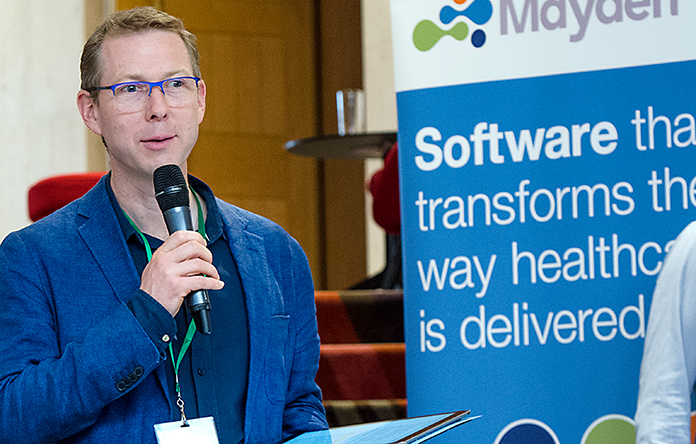
Thank you to Polly Waite for joining us at IAPT Connect 2017 to talk about how we can make the most of outcomes monitoring in therapy with children and young people. Polly is a clinical psychologist and Director of the Anxiety and Depression in Young People (AnDY) Research Clinic in Berkshire.
View the slides of Polly’s presentation here and check out Polly’s podcast with Mental Elf in which she talks about the importance and the logistics of using outcomes monitoring.
The AnDY Research Clinic is based in the School of Psychology and Clinical Language Sciences at the University of Reading, and is committed to improving the understanding and treatment of anxiety and depression in children and young people. The clinic works with Berkshire Healthcare NHS Foundation Trust to deliver clinical services for 7 to 17 year olds that complement local CAMHS.
The clinic has adopted principles of the CYP IAPT programme:
- meaningful service user participation
- timely access to evidence-based interventions
- collaboration between services and their users
- clinically relevant, session by session outcome monitoring to select, guide and evaluate treatment
Polly described the AnDY care pathway and treatments which include parent-focused CBT, individual CBT, clinic-based and school-based behavioural activation. The team delivering the service is made up of clinical psychologists, research clinical psychologists, PWPs and trainee Children’s Wellbeing Practitioners. Meaningful service user involvement is critical for the team and they invite young people in treatment and those with lived experience to provide feedback on their practices.
The service uses Routine Outcome Measures (ROMs) to improve treatment outcomes for clients, to provide better services that are targeted to client needs, and to demonstrate the value of the work to commissioners. Polly described how ROMs can be used in a meaningful way for clients, for example by collecting measures on progress towards the young person’s own goals by using Goal Based Outcomes (GBOs) and how there’s more work to do on developing new ROMs that are really relevant and meaningful for young people.
Research suggests that clinicians tend to overestimate rates of client improvement and aren’t so good at accurately detecting client deterioration as they think they are. Use of ROMs can help clinicians to better detect and respond to deterioration. Polly believes that for clinicians “using session by session measures keeps us grounded, and improves our performance and outcomes.”
For ROMs to work well, Polly suggested that clinicians need to:
- have knowledge, understand and be familiar with measures
- see the measures as valuable and a good ‘fit’
- be supported to use measures by colleagues and managers
- be in an organisation that prioritises measures
- make time for use and interpretation in session
- have the measures readily available
Polly described how their service is using iaptus CYP to manage patient records and record session by session outcome measures. Dawn Woods, Customer Support Manager and Feature Owner at Mayden, then explained how iaptus CYP is used by clinicians to collect ROMs and in sessions with young people.
iaptus CYP supports therapists to collect and report outcomes on a mobile device during therapy sessions. Questionnaires such as CORS and RCADS are optimised for use with children and their families, and therapists can safely lock down the rest of the patient’s record as questionnaires are completed. Results are automatically updated within the patient record and can be immediately shared on charts in a therapy session, so that a clinician can engage the young person in discussions about their treatment progress.
Find out more about iaptus CYP by requesting a system demo. You’ll learn about the system’s features plus gain a clear understanding of how the software can be used to collect outcome measures in session and monitor progress across sessions.
